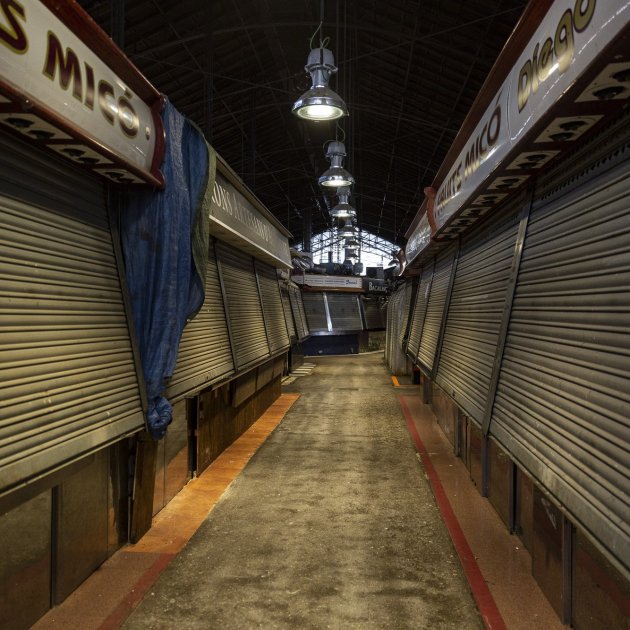The coronavirus crisis has affected Spain as a whole, and especially Catalonia, where the business fabric is mainly formed by SMEs and the self-employed. In fact, 94.6% of Catalan companies have under 10 workers, and almost 99% have fewer than 50. A large part of this business sector has seen its activity halt from one day to the next due to the pandemic and the state of alarm decreed by the Spanish government. But what is the real impact? Let's look at the figures.
Clearly, the most affected are the commercial -mainly retail-, industrial, tourism and hotel industry sectors, which had already suffered heavy setbacks due to the storm Gloria. The data which includes the first month of lockdown and the losses from Easter, shows the struggle of these sectors.
General Situation
The number of temporary lay-off schemes (ERTO), as a measure to cover part of the expenses that companies cannot pay, are very telling of the virus’ effect. Laid off workers are entitled to unemployment benefit which does not detract from their overall entitlement. To date, 92,148 lay-off schemes have been registered by the Catalan employment department, affecting a total of 676,919 workers. Of these lay-offs schemes, over 95% are due to force majeure.
By sector, the division is shown in the graphs below, with an obvious dominance of the service sector, both in number of files submitted and workers affected:
Translation:
Temporary lay-off schemes presented by sector (Businesses)
Services (blue); Industry (yellow); Construction (green); Agriculture (purple); Not specified (turquoise)
Temporary lay-off schemes presented by sector (Workers affected)
Services (blue); Industry (yellow); Construction (green); Agriculture (purple); Not specified (turquoise)
Commerce
The situation of small businesses is particularly delicate. It is one of the sectors that is suffering the most, with the exception of food and essential products business, which are allowed to open. According to the latest data from the Catalan ministry of business and knowledge, every week small businesses lose €525m as a result of the state of alarm due to coronavirus. From March 16th to April 12th, it is estimated the sector lost a total of €2,100m.
Closed establishemnts; Open establishments; Active workers on the sector; Not working; Weekly buisinesses losses; Accumulated losses (March 16th-April 12th)
Consumers
- The consumer trust index fell from 85.7 to 63.3 (22.4 points), between February and March
- 75.1% of consumers think their consumption level will drop after the lockdown.
- 14% of consumers think it is “safe” or “very likely” that they will lose their jobs as a result of the post-coronavirus crisis
- 80% plan to reduce their consumption of luxury goods, but only 32.1% are willing to reduce their consumption of healthy food
- Out of every 100 consumers, 4 have never bought online and have started to do so during the state of alarm
- 72.1% of consumers say that they will take into account the current behaviour of companies in future purchase decisions
Tourism
The tourism sector has also been especially affected by the pandemic, evidenced by the number of bookings and cancellations compared to the same weeks last year. In addition, it should be noted that the virus has compromised a large part of the flight and hotel bookings, first due to the cancellation of the Mobile World Congress (MWC) and other fairs with a large number of international visitors; the Easter holidays and cancellations for the summer also had great impact.
Hotel activity
The overall cancellation rate for hotels in 2020 is 37.25%, with a special increase in the months of March, April and May. The percentage of cancellations by month can be seen in the following graph, as well as the comparison by week between the previous year and this one.
Percentatge of 2020 cancelled hotel bookings per month
Hotel bookings 2020 vs. 2019
Airlines
According to the Air Transport Association (IATA), the scenario we are currently facing is unprecedented, passenger traffic revenues have fallen by 55% in the year's total and air traffic by 48%, in global figures that means half of the business. This impact is amplified throughout the economy: if the airline industry loses one job, 24 jobs are lost throughout the value chain. Therefore, 25 million jobs are at risk.
In fact, there has been a strong decrease in operations worldwide. In Spain, there has been a 94% decrease when compared to 2019. The overall fall internationally can be seen in the following table (provided by the Catalan business department):
Global programmed flights
Weekly variations regarding the same week in 2019
Pel que fa a l'afectació de companyies de grans volums que operen a l'Aeroport de Barcelona, la caiguda de la seva capacitat el dia 15 d'abril del 2020 és la següent: Vueling -96,5%; Iberia -94,9%; Norwegian -93,4%; Ryanair -97,7%; Easyjet -99,6%.
Regarding the effect on large companies operating at the Barcelona airport, the fall in capacity on April 15th 2020 is as follows: Vueling -96.5%; Iberia -94.9%; Norwegian -93.4%; Ryanair -97.7%; Easyjet -99.6%.
The air traffic drop at Catalan airports is shown in the table below:
What will summer bring us?
Regarding the Catalans intentions for this summer, surveys show most have no intention of travelling, whether for fear of the pandemic’s evolution or the economic strife that this crisis will bring.
